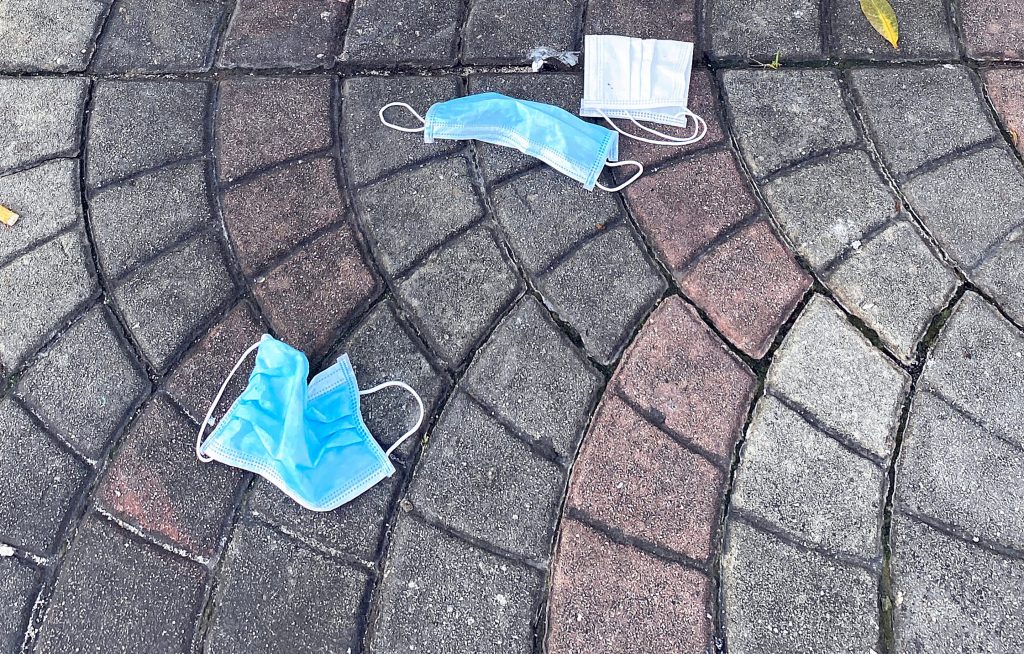
- ARAB NEWS
- 15 Jul 2025

With more and more people wearing face masks due to the spread of the new coronavirus, littering of them on roads and other places is becoming an issue in Japan.
An expert warned people against blindly discarding face masks out of fears of infecting others.
An hour's stroll in Tokyo's busy Shibuya district on Monday afternoon led to the discovery of seven discarded face masks.
Many restaurants are at a loss of how to get rid of face masks left behind by customers.
A 24-year-old employee at a Shibuya bar said that masks left on tables and sofas by customers are giving him a headache. There are as many as five or six discarded face masks a day, he said.
"Although we've asked customers to take their face masks home, some people leave them behind," the employee said.
"As I can't wear gloves while working, I have no choice but to pick up the face masks with my bare hands," he said, voicing concern over being infected.
Littering of face masks is also affecting trash collection by volunteers.
Green Bird, a Tokyo nonprofit engaged in trash pickups in and outside Japan, has been suspending its activities since late last month.
The organization pointed to the risk of its staff and volunteers being infected with the virus when touching abandoned face masks and cigarette butts as one of the reasons behind the suspension.
It concluded that using work gloves and a pair of tongs and thoroughly washing hands are not enough to eliminate the infection risk completely.
In a 30-minute litter pickup session in Tokyo's Harajuku district on March 11 involving only staff members of the organization, it found five discarded face masks.
Masayuki Ishida, an infectious disease expert and a doctor at Chikamori Hospital in the western Japan city of Kochi, warned that "the risk of infection through a discarded face mask is not zero."
A type of coronavirus can survive for six to nine days on a plastic container in temperatures of 20 degrees Celsius, according to Ishida.
Ishida recommended that people avoid touching other people's masks with their bare hands. He also said that people should hold the face masks' ear loops when throwing such items away.
"While people can reduce the risk of infections if they take the face masks off when they don't need them, I'd like people to dispose them properly," he said.
JIJI Press